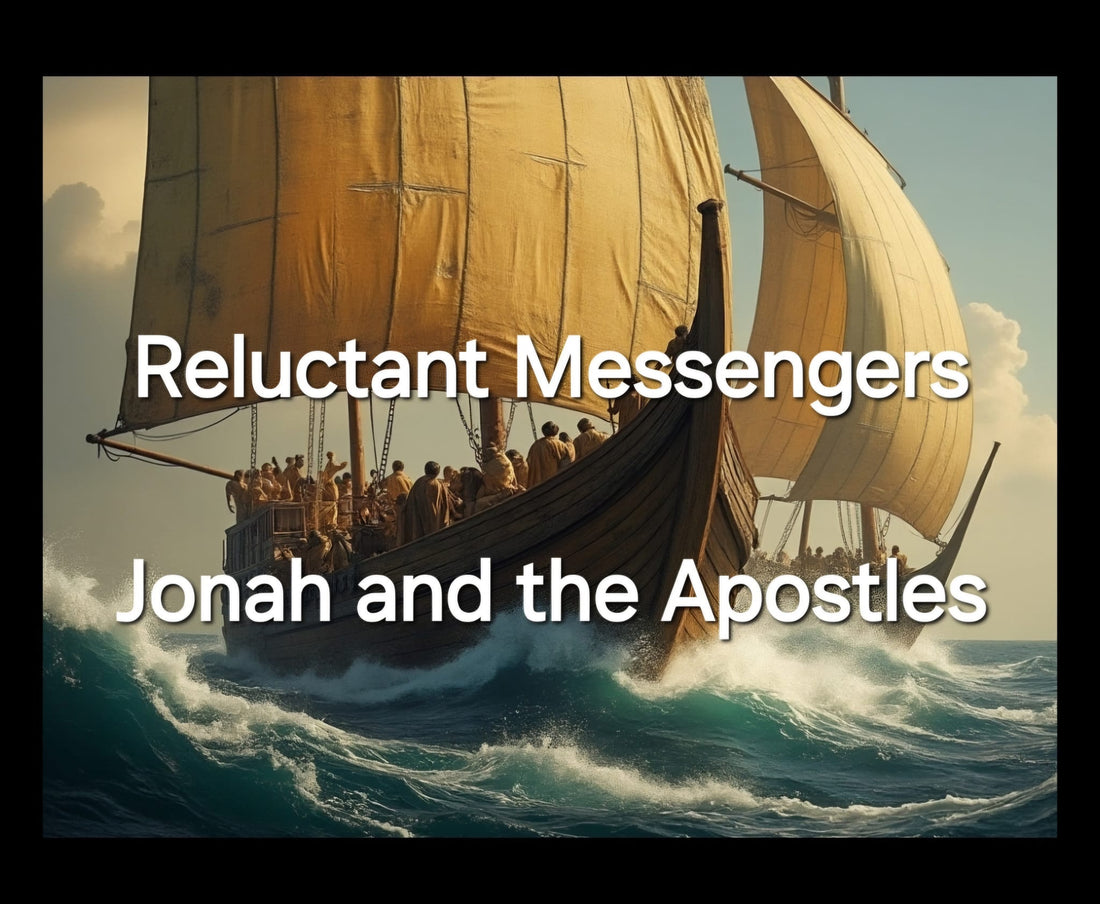
Reluctant Messengers
Daniel JusticeShare
In the annals of biblical narrative, few themes resonate as universally as the call to service and the human reluctance to answer it. This theme is vividly illustrated through the lives of Jonah and the twelve apostles, each revealing a profound journey from hesitation to divine purpose.
Jonah's story, as recounted in the Book of Jonah, begins with a divine command to prophesy against Nineveh, a city known for its wickedness. However, Jonah's initial response was not one of obedience but of flight. Fearing the task or perhaps the potential success of his mission which might lead to God's mercy over judgment, Jonah boarded a ship headed in the opposite direction. His attempt to escape God's will led him into the belly of a great fish, a metaphor for the depths of despair and introspection. After three days, Jonah repented, and the fish vomited him out onto dry land, where he finally went to Nineveh, albeit with a heart still not fully aligned with God's mercy.
The twelve apostles, chosen by Jesus Christ, also displayed varying degrees of reluctance and misunderstanding regarding their mission. Simon Peter, for instance, initially denied any association with Jesus out of fear during His trial. Thomas, known as the doubter, required physical proof of Jesus' resurrection. Even after Jesus' ascension, the apostles were hesitant, hiding in fear of persecution until the Holy Spirit emboldened them at Pentecost.
Both Jonah and the apostles faced tasks that led into unknown territories, both geographically and spiritually. Jonah feared the outcome of his prophecy, while the apostles feared the implications of following a Messiah who spoke of suffering and death.
They were all too aware of their human frailties. Jonah's flight was partly due to his own prejudices and fears, while the apostles often showed a lack of understanding or faith in Jesus' teachings.
In both cases, divine intervention was necessary to redirect their paths. For Jonah, it was the storm and the fish; for the apostles, it was the resurrection and the coming of the Holy Spirit.
Eventually, both Jonah and the apostles underwent a transformation. Jonah, though still with a begrudging heart, preached repentance in Nineveh. The apostles, after receiving the Holy Spirit, preached boldly, leading to the spread of Christianity.
The stories of Jonah and the apostles serve as powerful reminders of God's patience and transformative power. They highlight that God often chooses the reluctant, the flawed, and the fearful to carry out His purposes. This choice not only demonstrates divine mercy but also the potential for profound change within every individual. Through these narratives, we see that reluctance can be a starting point for a journey towards profound faith and obedience, illustrating that God's call, though initially resisted, can lead to redemption, not just for the messenger, but for many through their message.
